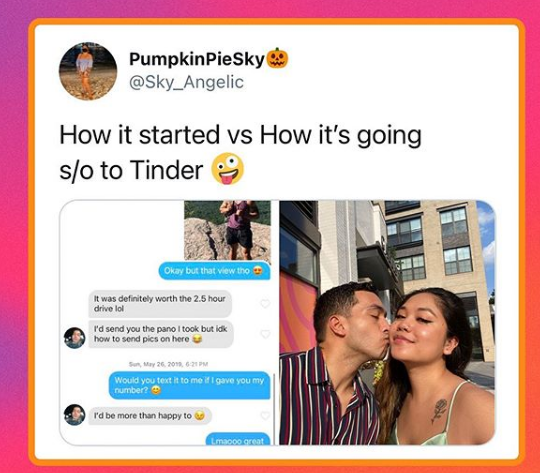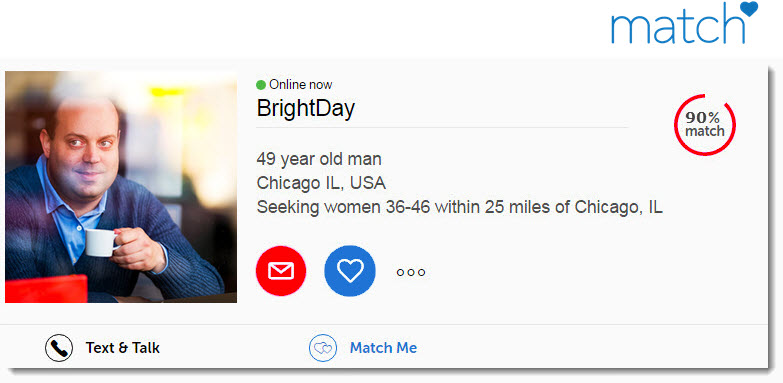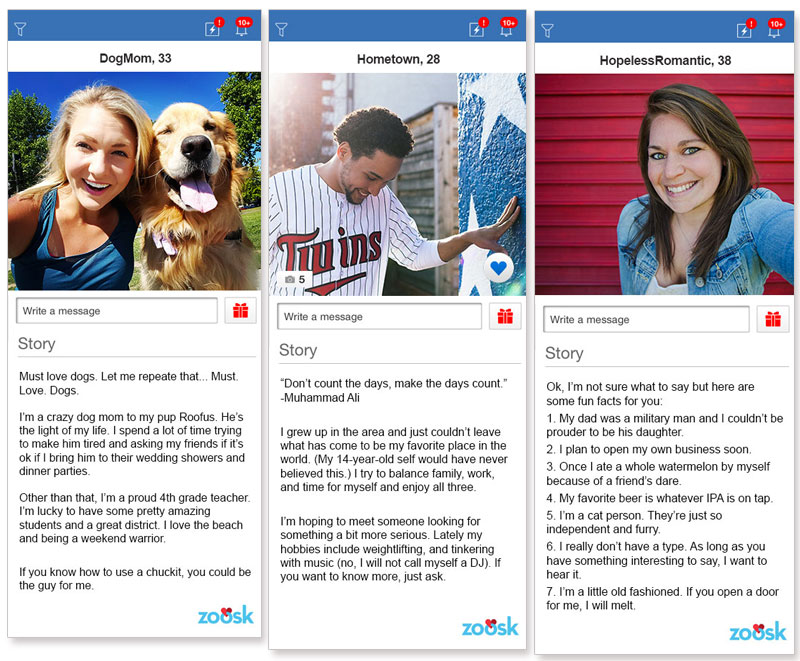Best About Me In A Dating Site Ever
In the more than two decades since the launch of commercial dating sites such as Match.com, online dating has evolved into a multibillion-dollar industry serving customers around the world. A new Pew Research Center study explores how dating sites and apps have transformed the way Americans meet and develop relationships, and how the users of these services feel about online dating.
- Do you desire to meet single men online and start romantic relations with them? This is the site where you will find hot local singles that are readily available.
- One of the things I realized in dating is that it is very easy to find a nice girl, who has a career. Dating as a good looking person also allows me.

Category Dating page 1.
Here are 10 facts from the study, which is based on a survey conducted among 4,860 U.S. adults in October 2019:

1Three-in-ten U.S. adults say they have ever used a dating site or app, but this varies significantly by age and sexual orientation. While 48% of 18- to 29-year-olds say have ever used a dating site or app, the share is 38% among those ages 30 to 49 and even lower for those 50 and older (16%). At the same time, personal experiences with online dating greatly differ by sexual orientation. Lesbian, gay or bisexual (LGB) adults are roughly twice as likely as those who are straight to say they ever used a dating platform (55% vs. 28%).
2A small share of Americans say they have been in a committed relationship with or married someone they met through a dating site or app. About one-in-ten U.S. adults say this (12%), though these shares are higher among LGB adults, as well as those ages 18 to 49.
Pew Research Center has long studied the changing nature of romantic relationships and the role of digital technology in how people meet potential partners and navigate web-based dating platforms. This particular report focuses on the patterns, experiences and attitudes related to online dating in America. These findings are based on a survey conducted Oct. 16 to 28, 2019, among 4,860 U.S. adults. This includes those who took part as members of Pew Research Center’s American Trends Panel (ATP), an online survey panel that is recruited through national, random sampling of residential addresses, as well as respondents from the Ipsos KnowledgePanel who indicated that they identify as lesbian, gay or bisexual (LGB). The margin of sampling error for the full sample is plus or minus 2.1 percentage points.
Recruiting ATP panelists by phone or mail ensures that nearly all U.S. adults have a chance of selection. This gives us confidence that any sample can represent the whole U.S. adult population (see our Methods 101 explainer on random sampling). To further ensure that each ATP survey reflects a balanced cross-section of the nation, the data are weighted to match the U.S. adult population by gender, race, ethnicity, partisan affiliation, education and other categories.
For more, see the report’s methodology about the project. You can also find the questions asked, and the answers the public provided, in this topline.
3Roughly six-in-ten online daters (57%) say they have had an overall positive experience with these platforms, including 14% who describe their experience as very positive and 43% who say it was somewhat positive. Fewer users – though still about four-in-ten – describe their online dating experience as at least somewhat negative, including 9% who describe it as very negative.
People’s assessments of their online dating experiences vary widely by socioeconomic factors. Around six-in-ten online daters with a bachelor’s or advanced degree (63%) say their experience has been very or somewhat positive, compared with 47% among those who have a high school diploma or less. The ratings online daters give their overall experience do not vary statistically by gender or race and ethnicity.
4While online daters generally say their overall experience was positive, they also point out some of the downsides of online dating. By a wide margin, Americans who have used a dating site or app in the past year say their recent experience left them feeling more frustrated (45%) than hopeful (28%).
Other sentiments are more evenly balanced between positive and negative feelings. Some 35% of current or recent users say that in the past year online dating has made them feel more pessimistic, while 29% say these platforms left them feeling more optimistic. Similarly, 32% say online dating sites or apps made them feel more confident, whereas 25% say it left them feeling more insecure.
5Majorities of online daters say it was at least somewhat easy to find potentially compatible partners. Many online daters say they could find people on these platforms who they were physically attracted to, shared their hobbies and interests, seemed like someone they would want to meet in person or were looking for the same kind of relationship as them. At the same time, there are some gender differences in how hard or easy users say it was to find compatible partners.
Best About Me In A Dating Site Ever Book
For example, women who have ever used a dating site or app are more likely than men to say they have found it very or somewhat difficult to find people they were physical attracted to (36% vs. 21%) or who like someone they would want to meet in person (39% vs. 32%). By contrast, male users are more inclined than female users to say it was at least somewhat difficult to find people who shared their hobbies and interests (41% vs. 30%).
6Women are more likely than men to categorize certain information as essential to see in other users’ profiles. Among online daters, 72% of women say it was very important to them that the profiles they looked at included the type of relationship the person was looking for, compared with about half of men (53%). Women who have online dated are also more likely than men to say it was very important to them that the profiles they looked through included a person’s religious beliefs (32% vs. 18%), occupation (27% vs. 8%) or height (22% vs. 8%).
Other gender differences – such as the importance of users including their hobbies and interests, their racial or ethnic background or their political affiliation – are more modest.
7There are stark gender differences in the amount of attention online daters say they received on these sites or apps. Overall, online daters are more likely to say they did not receive enough messages than to say they received too many, but users’ experiences vary by gender.
Roughly six-in-ten men who have online dated in the past five years (57%) say they feel as if they did not get enough messages, while just 24% of women say the same. Meanwhile, women who have online dated in this time period are five times as likely as men to think they were sent too many messages (30% vs. 6%).

8Younger women are especially likely to report having troublesome interactions on online dating platforms. About three-in-ten or more online dating users say someone continued to contact them on a dating site or app after they said they were not interested (37%), sent them a sexually explicit message or image they didn’t ask for (35%) or called them an offensive name (28%). About one-in-ten (9%) say another user has threated to physically harm them.
These rates are even higher among younger women. Six-in-ten female users ages 18 to 34 say someone on a dating site or app continued to contact them after they said they were not interested, while 57% report that another user has sent them a sexually explicit message or image they didn’t ask for. At the same time, 44% report that someone called them an offense name on a dating site or app, while 19% say they have had someone threaten to physically harm them.

Best About Me In A Dating Site Ever Questions
9Americans have varying views about the safety of online dating. Roughly half of Americans overall (53%) say dating sites and apps are a very or somewhat safe way to meet people, while 46% believe they are not too or not at all safe.
Public perceptions about the safety of online dating vary substantially by personal experience. A majority of Americans who have ever used a dating site or app (71%) see online dating as a very or somewhat safe way to meet someone, compared with 47% of those who have never used these platforms.
Among the public as a whole, women are far more likely than men to say dating sites and apps are not a safe way to meet people (53% vs. 39%). Views on this question also vary substantially by age, educational attainment and race and ethnicity.
10More than half of Americans (54%) say relationships that begin on a dating site or app are just as successful as those that begin in person. A smaller share of U.S. adults – though still about four-in-ten – say these kinds of relationships are less successful than relationships that begin in person.
At the same time, half of Americans say online dating has had neither a positive nor negative effect on dating and relationships. Smaller shares say these platforms have had a mostly positive (22%) or mostly negative effect (26%).

Note: Here are the questions used for this report, along with responses, and its methodology.